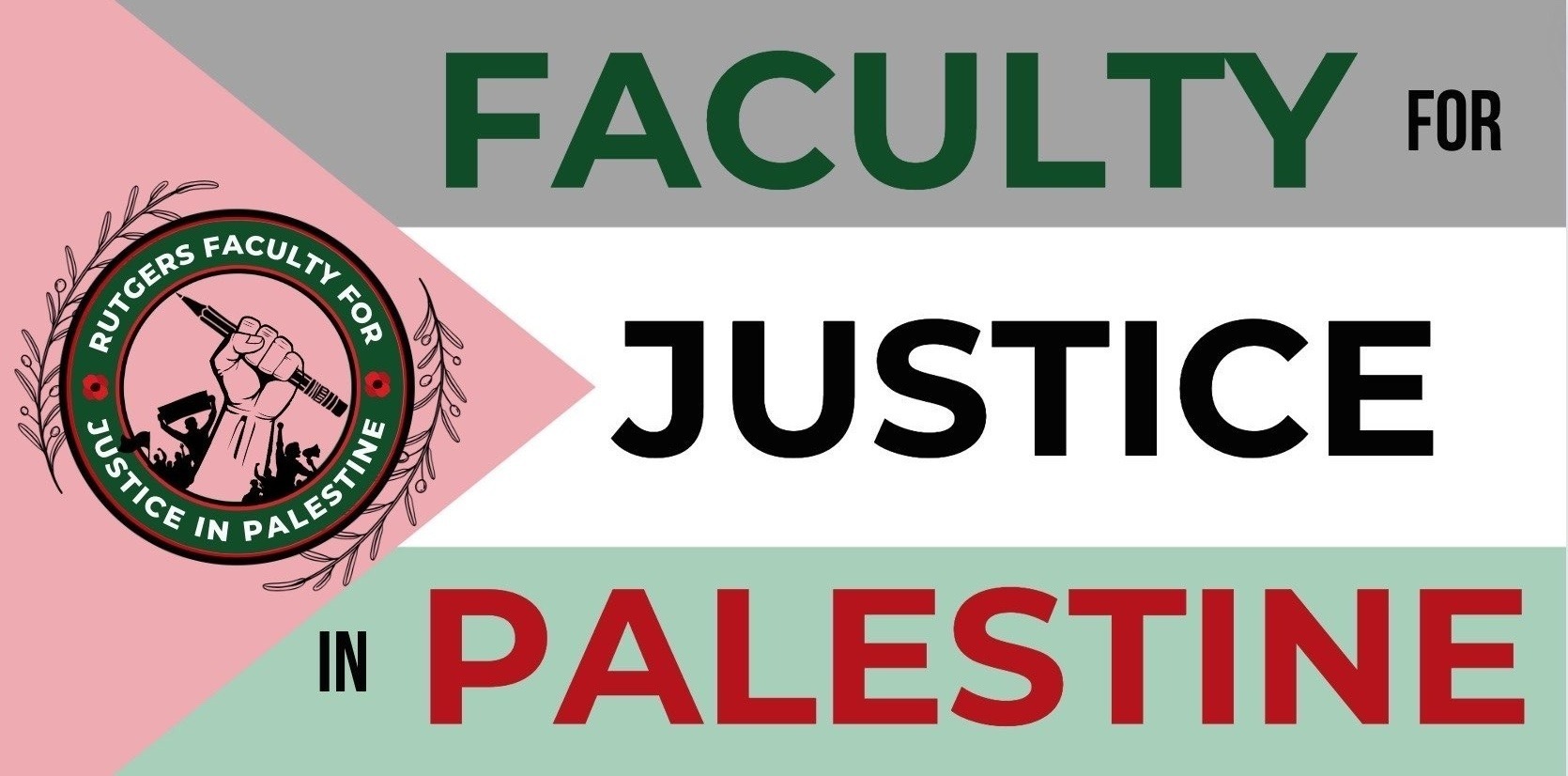As Jewish members of Rutgers Faculty for Justice in Palestine, we denounce the smears of antisemitism being leveled at Rutgers professors and distinguished scholars Sahar Aziz and Noura Erakat, the Center for Security, Race, and Rights (CSRR), and the Rutgers Students for Justice in Palestine (SJP) chapter.
In a March 27 letter to Rutgers administration, House Committee on Education and the Workforce (HCE&W) chairwoman Rep. Virginia Foxx alleged “pervasive antisemitism” at Rutgers University, singling out Profs. Aziz and Erakat, CSRR, and SJP.
But it is clear to us that Rep. Foxx’s baseless accusation of “pervasive antisemitism” wantonly misrepresents the widespread support for Palestinian liberation from Zionist racism, dispossession, and genocide (UN Special Rapporteur Francesca Albanese has correctly designated Israel’s assault on Gaza “an escalatory stage of a long-standing settler colonial process of erasure”).
As Jews, many of whom lost family in the Nazi Holocaust, we reject the weaponizing of our shared history of persecution, definitions of antisemitism that falsely conflate anti-Zionism with anti-Jewish hatred, and the hijacking of our Jewish identity to distract from the crimes of the apartheid Israeli state and muzzle its critics.
For us, the word intifada, meaning uprising in Arabic, and the slogan “Free Palestine From the River to the Sea” are neither antisemitic nor genocidal, as Israel’s enablers claim. Rather, they are calls for freedom, safety, and justice for all people — Jews, Palestinians, and other communities — who live between the Jordan River and the Mediterranean Sea.
We recognize these smears, and violent police crackdowns on peaceful campus protests, are desperate responses to surging Palestine advocacy. We are proud to stand with Profs. Aziz and Erakat, SJP, and all those in the Rutgers community who reject racism in all its forms – including antisemitism — and refuse to be silenced in the face of injustice.
Rutgers President Jonathan Holloway will be testifying before the HCE&W on May 23. The world will be watching. We call on President Holloway to defend our colleagues, students, and our community against the committee’s unfounded and disingenuous allegations of antisemitism.
To donate to the Center for Security, Race, and Rights, click here.
To donate to the Center for Islamic Life, which was vandalized on April 10, the first day of Eid, click here.
This statement has been endorsed by the Rutgers chapter of the Faculty for Justice in Palestine, and is signed by the following Jewish members:
Derek Baron, Postdoctoral Associate, New Brunswick
Mark Bray, Assistant Teaching Professor, History, New Brunswick
Ed Cohen, Professor and Director of Graduate Studies, Women’s, Gender, and Sexuality Studies
Hank Kalet, lecturer, Journalism and Media Studies, New Brunswick
Liana Katz, PhD Candidate, Geography, New Brunswick
David Kurnick, Professor of English, New Brunswick
Elaine LaFay, Assistant Professor, History, New Brunswick
Jeffrey Lawrence, Associate Professor of English, New Brunswick
David Letwin, Lecturer, Mason Gross School of the Arts, New Brunswick
Alexander Liebman, PhD candidate, Geography, New Brunswick
David A. Love, Assistant Teaching Professor, Journalism and Media Studies, SC&I, New Brunswick
Emily Marker, Associate Professor of History, Camden
Andrew Parker, Professor of French and Comparative Literature, New Brunswick
Bryan Sacks, Lecturer, School of Communication and Information, New Brunswick
Erin R. Santana, Postdoctoral Associate, Newark
Beth Stephens, Distinguished Professor, Rutgers Law School, Newark
Lauren J Silver, Associate Professor of Childhood Studies, Camden
Judith Surkis, Professor, History, New Brunswick
Howard Swerdloff, Lecturer, Writing Program, New Brunswick
Todd Wolfson, Associate Professor, Journalism and Media Studies (New Brunswick)
Sophie Ziner, PhD Candidate, Literatures in English, New Brunswick
Abigail Zitin, Associate Professor, English, New Brunswick
